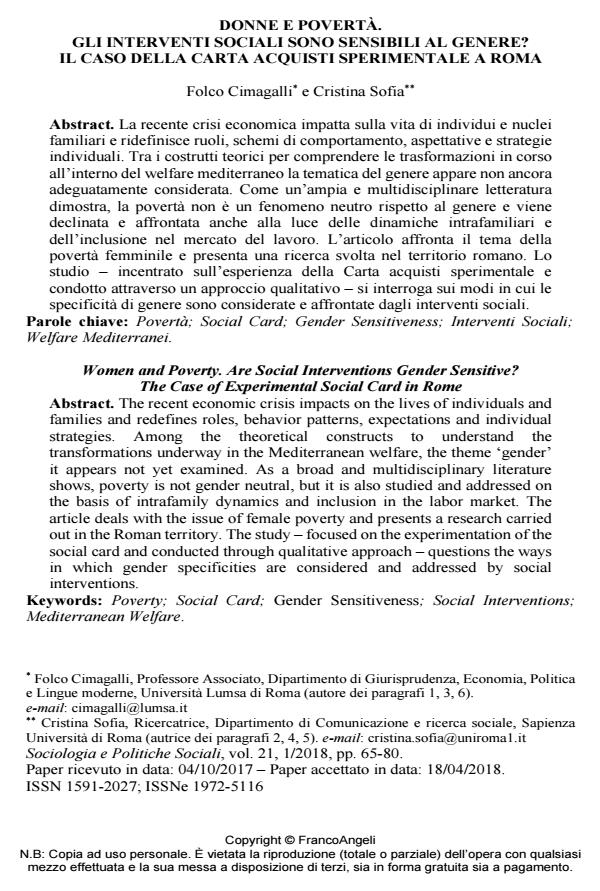Women and Poverty. Are Social Interventions Gender Sensitive? The Case of Experimental Social Card in Rome
Journal title SOCIOLOGIA E POLITICHE SOCIALI
Author/s Folco Cimagalli, Cristina Sofia
Publishing Year 2018 Issue 2018/1
Language Italian Pages 16 P. 65-80 File size 217 KB
DOI 10.3280/SP2018-001005
DOI is like a bar code for intellectual property: to have more infomation
click here
Below, you can see the article first page
If you want to buy this article in PDF format, you can do it, following the instructions to buy download credits

FrancoAngeli is member of Publishers International Linking Association, Inc (PILA), a not-for-profit association which run the CrossRef service enabling links to and from online scholarly content.
The recent economic crisis impacts on the lives of individuals and families and redefines roles, behavior patterns, expectations and individual strategies. Among the theoretical constructs to understand the transformations underway in the Mediterranean welfare, the theme ‘gender’ it appears not yet examined. As a broad and multidisciplinary literature shows, poverty is not gender neutral, but it is also studied and addressed on the basis of intrafamily dynamics and inclusion in the labor market. The article deals with the issue of female poverty and presents a research carried out in the Roman territory. The study - focused on the experimentation of the social card and conducted through qualitative approach - questions the ways in which gender specificities are considered and addressed by social interventions.
Keywords: Poverty; Social Card; Gender Sensitiveness; Social Interventions; Mediterranean Welfare.
- Processi di marginalizzazione: il caso delle temporeras in Andalusia Daria Forlenza, Folco Cimagalli, in SICUREZZA E SCIENZE SOCIALI 3/2024 pp.132
DOI: 10.3280/SISS2024-003011
Folco Cimagalli, Cristina Sofia, Donne e povertà. Gli interventi sociali sono sensibili al genere? Il caso della carta acquisti sperimentale a Roma in "SOCIOLOGIA E POLITICHE SOCIALI" 1/2018, pp 65-80, DOI: 10.3280/SP2018-001005